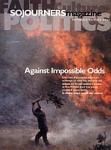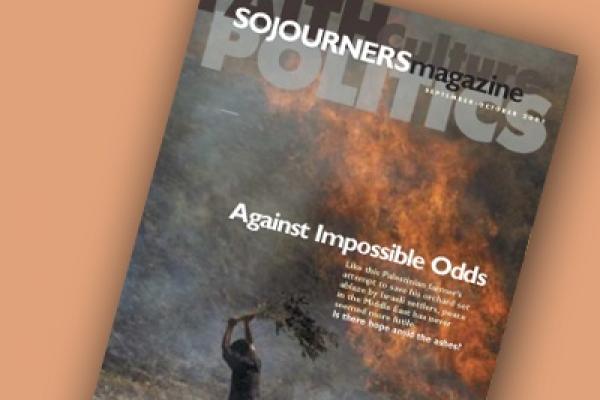Unmistakable American accents surface in the Hebrew of many West Bank settlers-as well as in a similar proportion, perhaps, of the Israeli peace camp. As an American-born Israeli Jew who left the blessed United States for the original "promised land" 33 years ago, I find myself becoming more consciously American as the years pass, in transmitting my love for baseball to my son, as well as in using The Simpsons as the point of reference (if not the model) in many of our own family matters.
My high school class graduated in 1971; we were freshmen when the occupation began. Many of my religious Jewish-Israeli high school friends are West Bank settlers, and I feel I have little in common with them today. But there is surely a shared spirituality: While our politics are widely divergent, we all consume Bob Dylan, Shlomo Carlebach (the Singing Rabbi), and candles and wish we meditated more often.
As opposed to most (Jewish) immigrants to Israel, who fled oppression and poverty, Jews from the West came for idealistic reasons and usually don't limit their democratic involvement to election time. And here, of course, is the critical divergence: between those whose concerns are limited to the Jewish people and those who aspire to making Israel a truly inclusive society.
And this, dear North American reader, is as much a statement about America-which also happens to be the destroyer of an indigenous society-as it is about Israel. We all have our privilege, our "savages," and our Manifest Destiny. West Bank settler vigilante violence with a Brooklyn accent has deep American roots, in the past as well as the present, even if Israeli-American Jewish hoodlums are probably the first generation in their families ever to have touched a weapon. I sure hope they will be the last.
Rabbi Jeremy Milgrom is co-director of the Jerusalem-based Rabbis for Human Rights.

Got something to say about what you're reading? We value your feedback!
